Under the patronage of the President of Poland, with the participation of the Speaker of the Sejm and the Senate, a conference was held on the occasion of the 90th anniversary of the birth of Pope Benedict XVI.
The conference focused, among other things, on Christian values, the relationship between church and state, and the role the church will play on the road to Europe's rebirth.
Participants in the conference highlighted the historical significance of the succession of a German pope to a Polish pope. The President of the Bundestag Dr. Norbert Lammert called this event destiny.
Joseph Ratzinger was one of John Paul II's closest collaborators and friends. So it seems natural that this great theologian and intellectual sat on the throne of Peter after the Polish Pope.
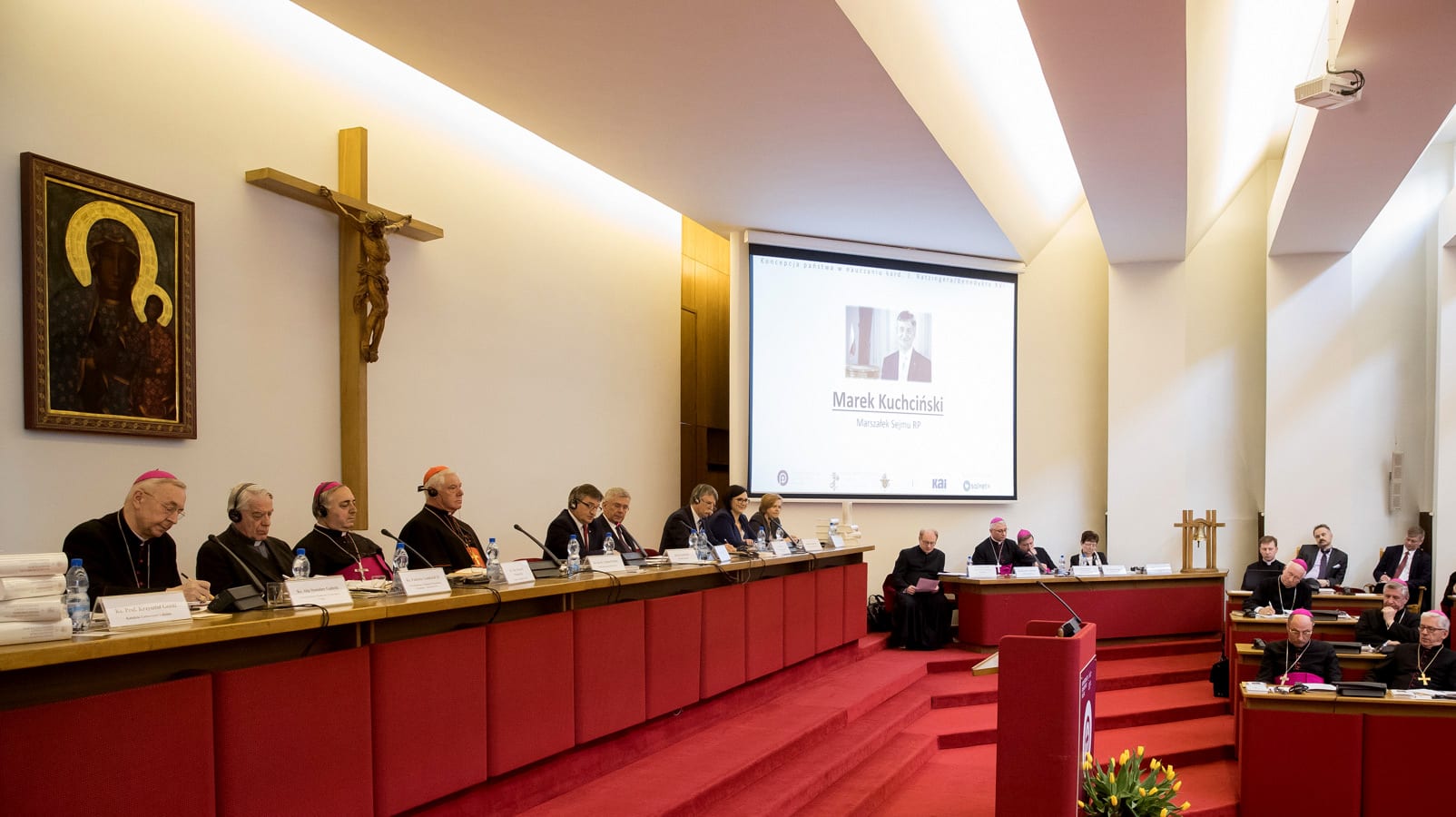 Marek Kuchciński, Speaker of the Sejm, spoke about the political activity of societies as one of the subjects of interest of Benedict XVI. He pointed out that the teachings of Cardinal Ratzinger prompt questions about "how, when making political decisions and legislating, to be faithful to the revealed and natural law and at the same time to refer to reason, which is the basis of every public activity, and at the same time how to be an effective politician, an effective formation that has to win elections in order to realize its programs...". According to the Speaker, a politician's concept of the state and the teachings from the works of the Holy Father and Cardinal Ratzinger are a good indication and a strong point of support. "I am aware that this is a huge task - not only our work today in Poland for the common good, not only in the international organization, but in all politics in global terms. We must meet this enormous task and continue to work for the common good"- he stressed. Speech by the Speaker of the Sejm Marek Kuchciński
Marek Kuchciński, Speaker of the Sejm, spoke about the political activity of societies as one of the subjects of interest of Benedict XVI. He pointed out that the teachings of Cardinal Ratzinger prompt questions about "how, when making political decisions and legislating, to be faithful to the revealed and natural law and at the same time to refer to reason, which is the basis of every public activity, and at the same time how to be an effective politician, an effective formation that has to win elections in order to realize its programs...". According to the Speaker, a politician's concept of the state and the teachings from the works of the Holy Father and Cardinal Ratzinger are a good indication and a strong point of support. "I am aware that this is a huge task - not only our work today in Poland for the common good, not only in the international organization, but in all politics in global terms. We must meet this enormous task and continue to work for the common good"- he stressed. Speech by the Speaker of the Sejm Marek Kuchciński
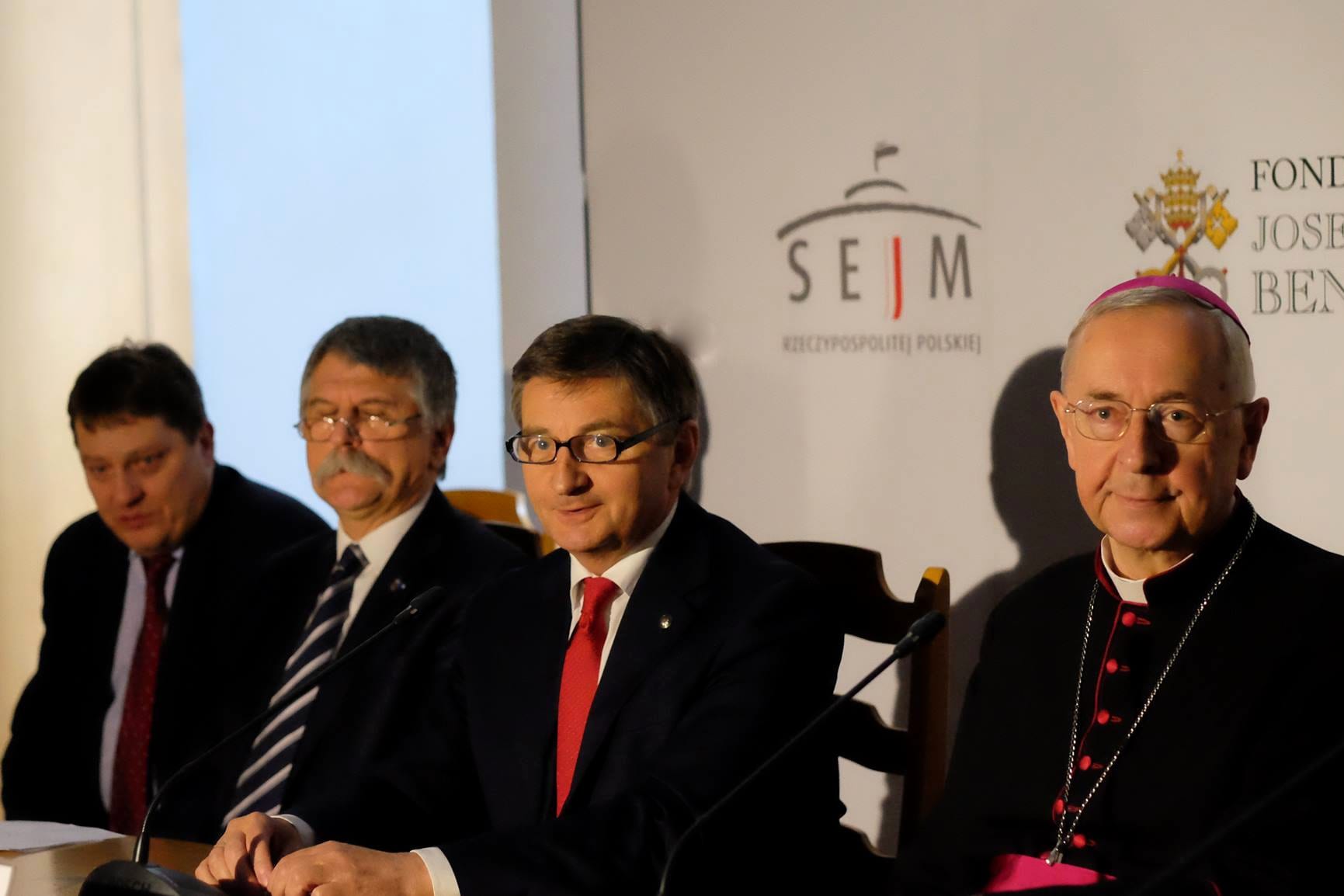 During his statement to the press, the Speaker also highlighted two dates: Benedict XVI's 90th birthday and the 60th anniversary of the signing of the Treaties of Rome. In this context, he stressed the need to return to European roots, the values that guided the Founding Fathers of the European Union who wanted a Europe free of wars and based on Christianity.
During his statement to the press, the Speaker also highlighted two dates: Benedict XVI's 90th birthday and the 60th anniversary of the signing of the Treaties of Rome. In this context, he stressed the need to return to European roots, the values that guided the Founding Fathers of the European Union who wanted a Europe free of wars and based on Christianity.
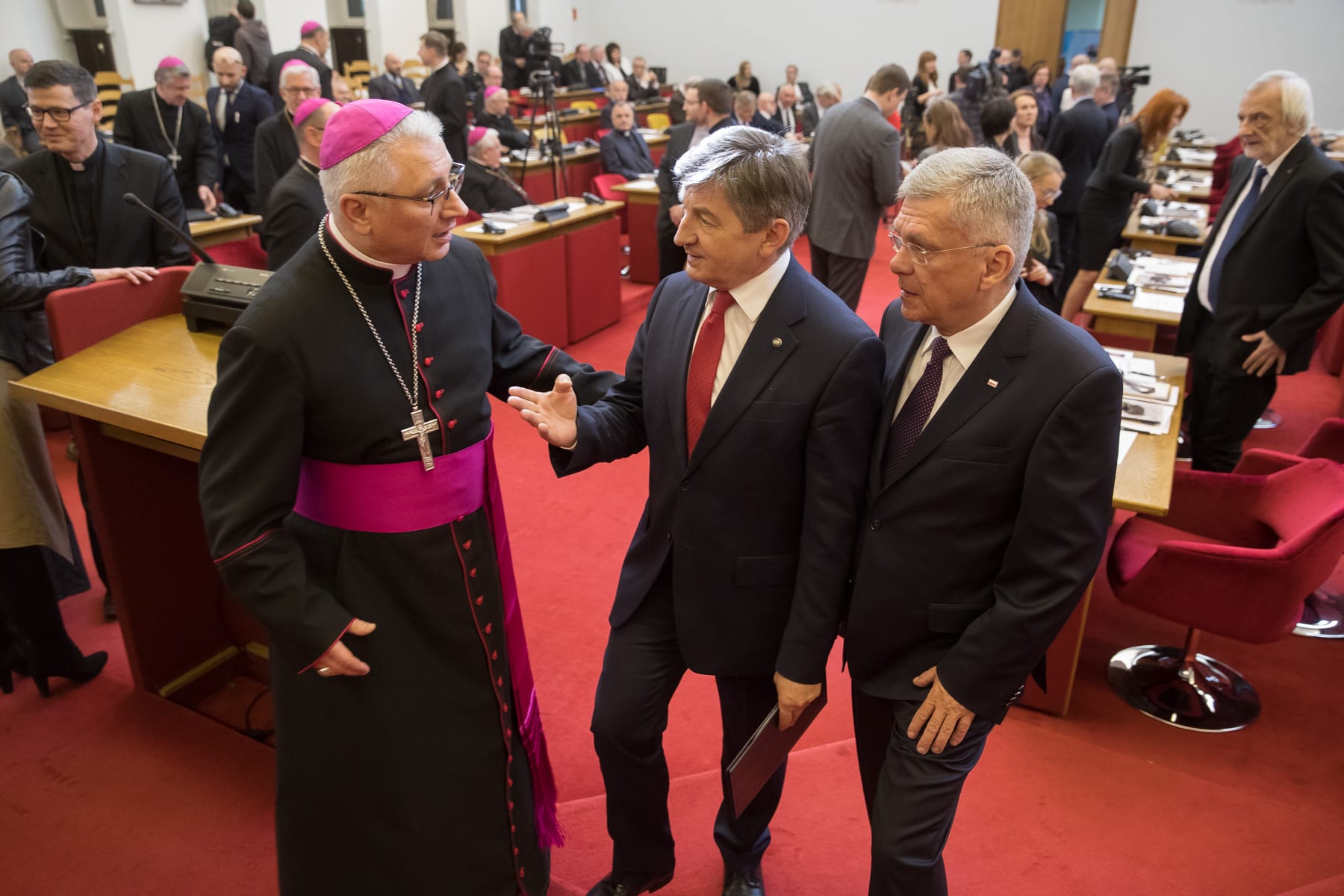 Senate Speaker Stanislaw Karczewski: Man goes from not remembering God to not remembering man.
Senate Speaker Stanislaw Karczewski: Man goes from not remembering God to not remembering man.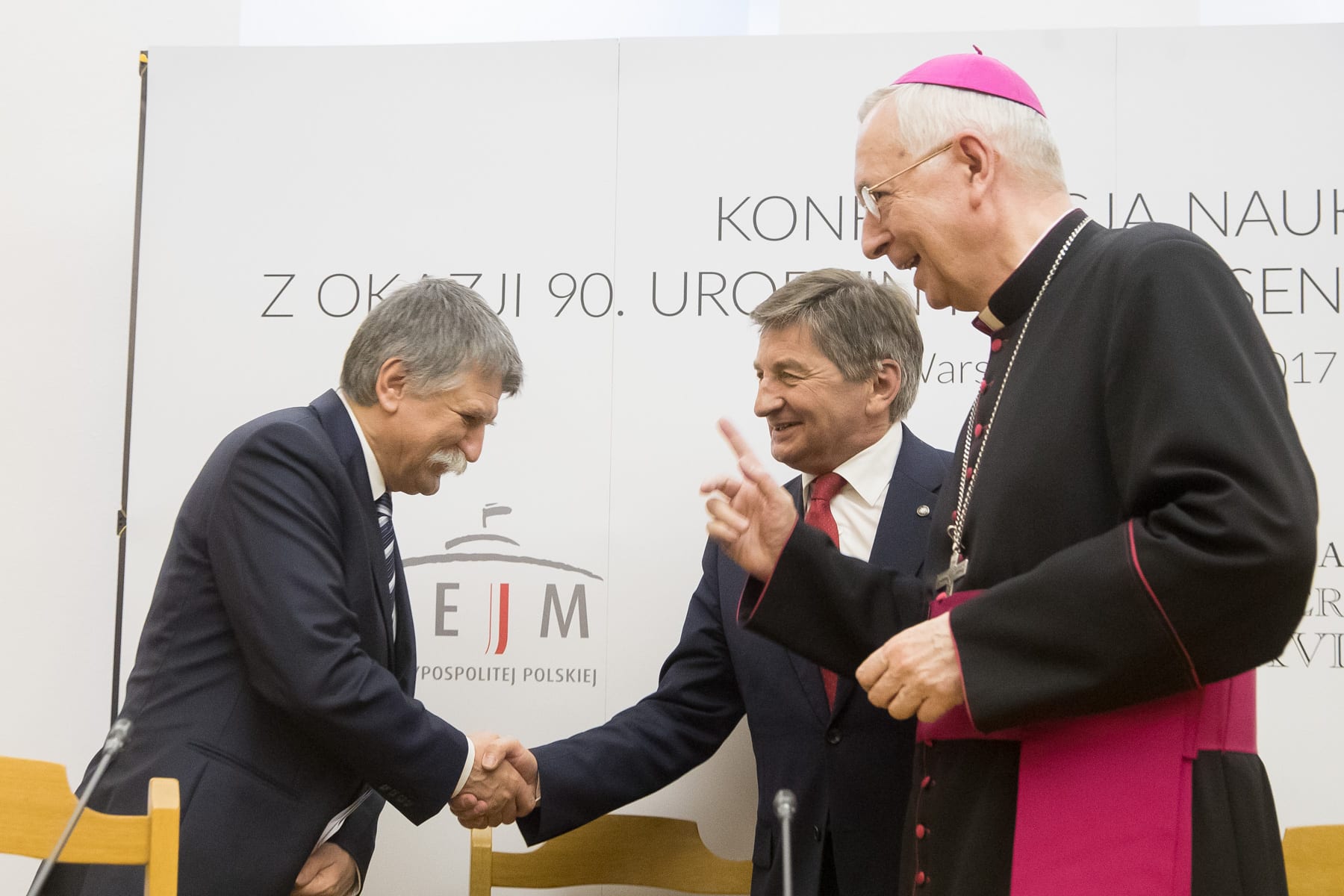 The Speaker of the Hungarian Parliament László Kövér pointed out that the fight for the presence of Christianity is a fight for fundamental values... Without a strong human identity there is no sense of being for the whole nation and state. According to Kövér, the danger is brought by the dictate of relativism, which he sees as a new form of totalitarianism.
The Speaker of the Hungarian Parliament László Kövér pointed out that the fight for the presence of Christianity is a fight for fundamental values... Without a strong human identity there is no sense of being for the whole nation and state. According to Kövér, the danger is brought by the dictate of relativism, which he sees as a new form of totalitarianism.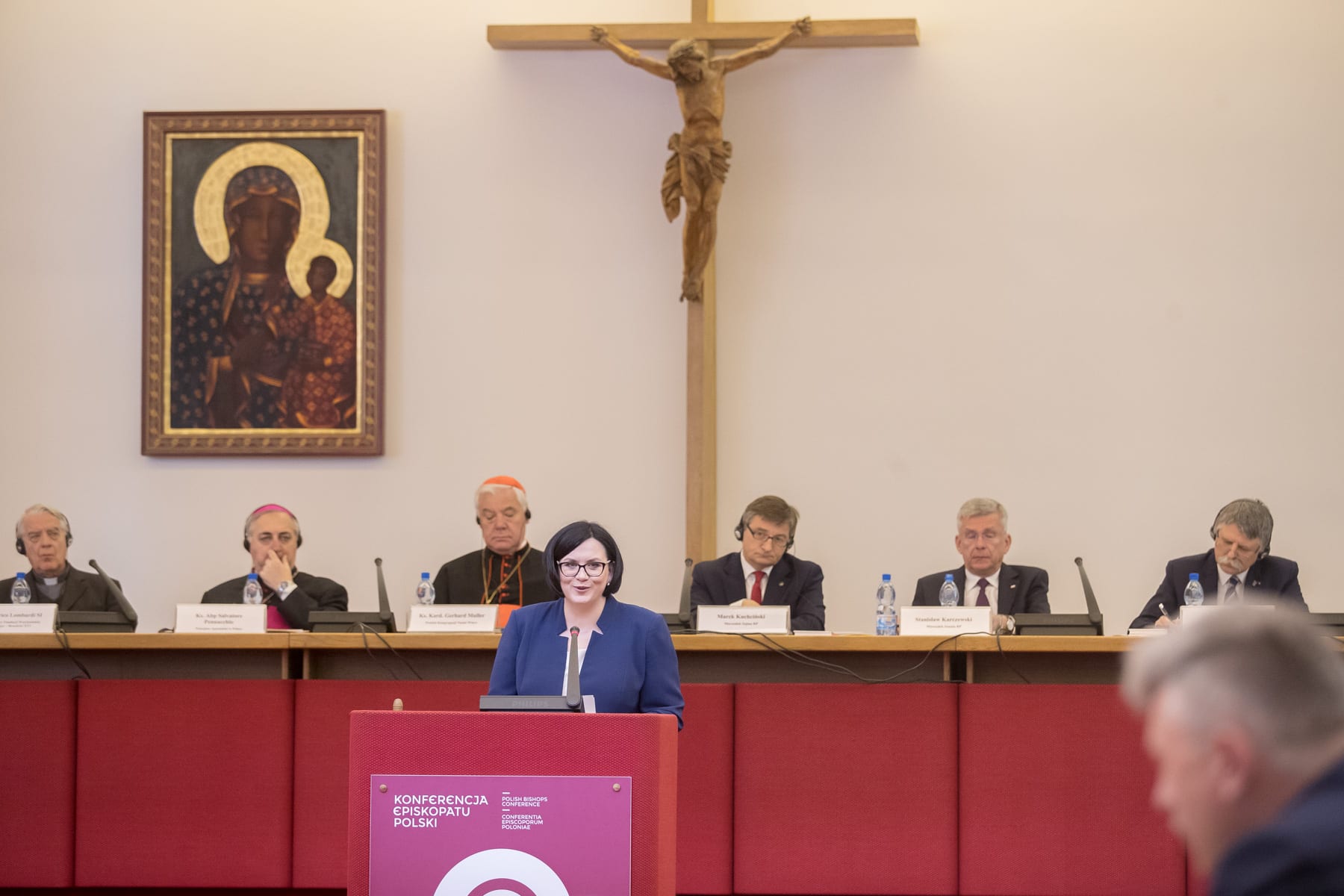 The Head of the President's Chancellery, Małgorzata Sadurska, read a letter from the President in which he indicated, among other things, that the Holy Father Benedict XVI continued two fundamental trends of the pontificate of our great countryman, St. John Paul II. The first was the explicit affirmation of the Christian and Catholic identity, rediscovering its deep, pure sources. The second was the dialogue of the Church with the modern world, which was undergoing serious civilizational changes.
The Head of the President's Chancellery, Małgorzata Sadurska, read a letter from the President in which he indicated, among other things, that the Holy Father Benedict XVI continued two fundamental trends of the pontificate of our great countryman, St. John Paul II. The first was the explicit affirmation of the Christian and Catholic identity, rediscovering its deep, pure sources. The second was the dialogue of the Church with the modern world, which was undergoing serious civilizational changes.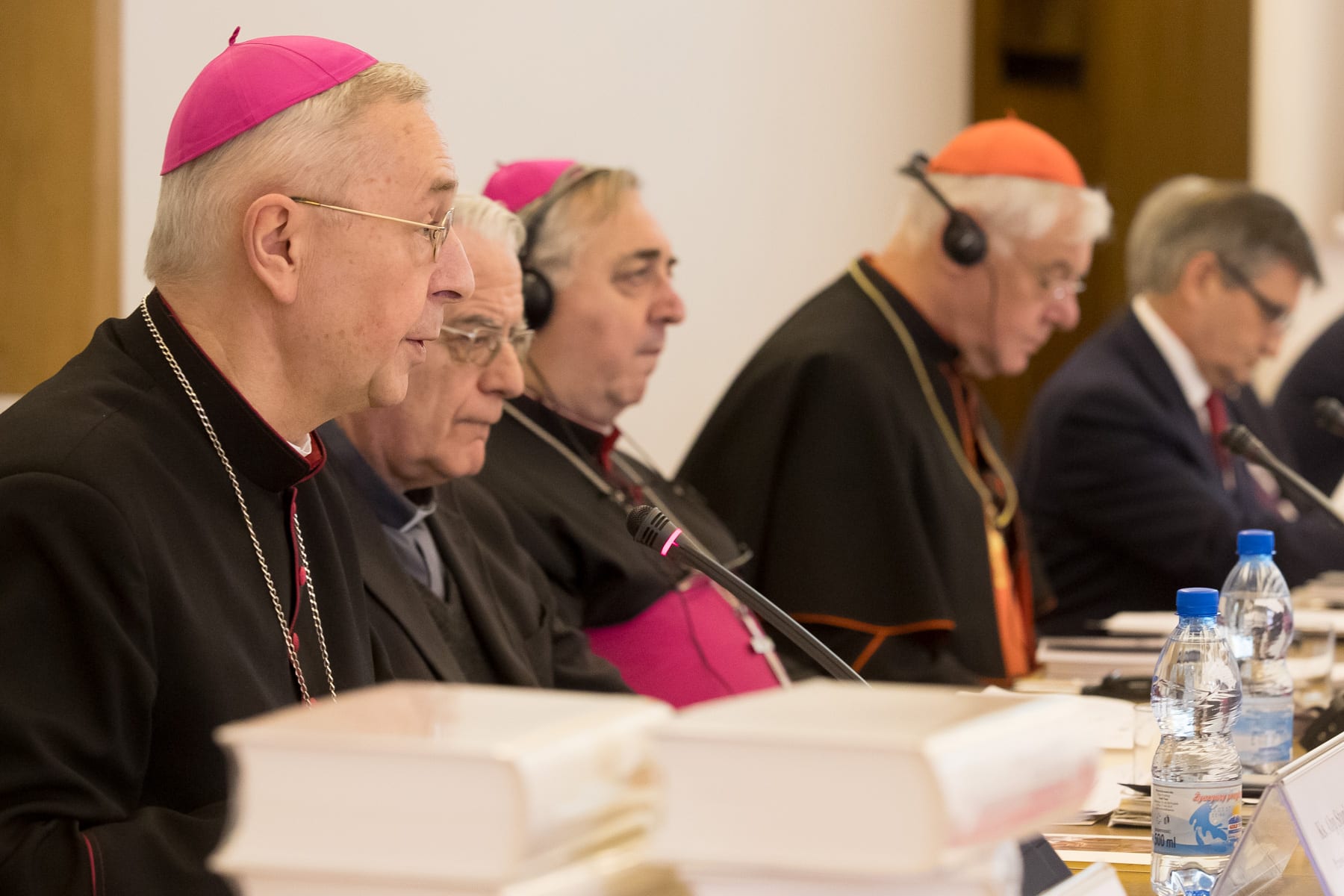 Archbishop Stanislaw Gądecki, the President of the Polish Episcopal Conference: We are accustomed to accepting that the fundamental criterion here is the principle of the majority: the law is that which has been recognised as law by the majority of society or its representatives. Benedict XVI notes, however, that this criterion is insufficient in the case of law pertaining to human dignity and humanity.
Archbishop Stanislaw Gądecki, the President of the Polish Episcopal Conference: We are accustomed to accepting that the fundamental criterion here is the principle of the majority: the law is that which has been recognised as law by the majority of society or its representatives. Benedict XVI notes, however, that this criterion is insufficient in the case of law pertaining to human dignity and humanity.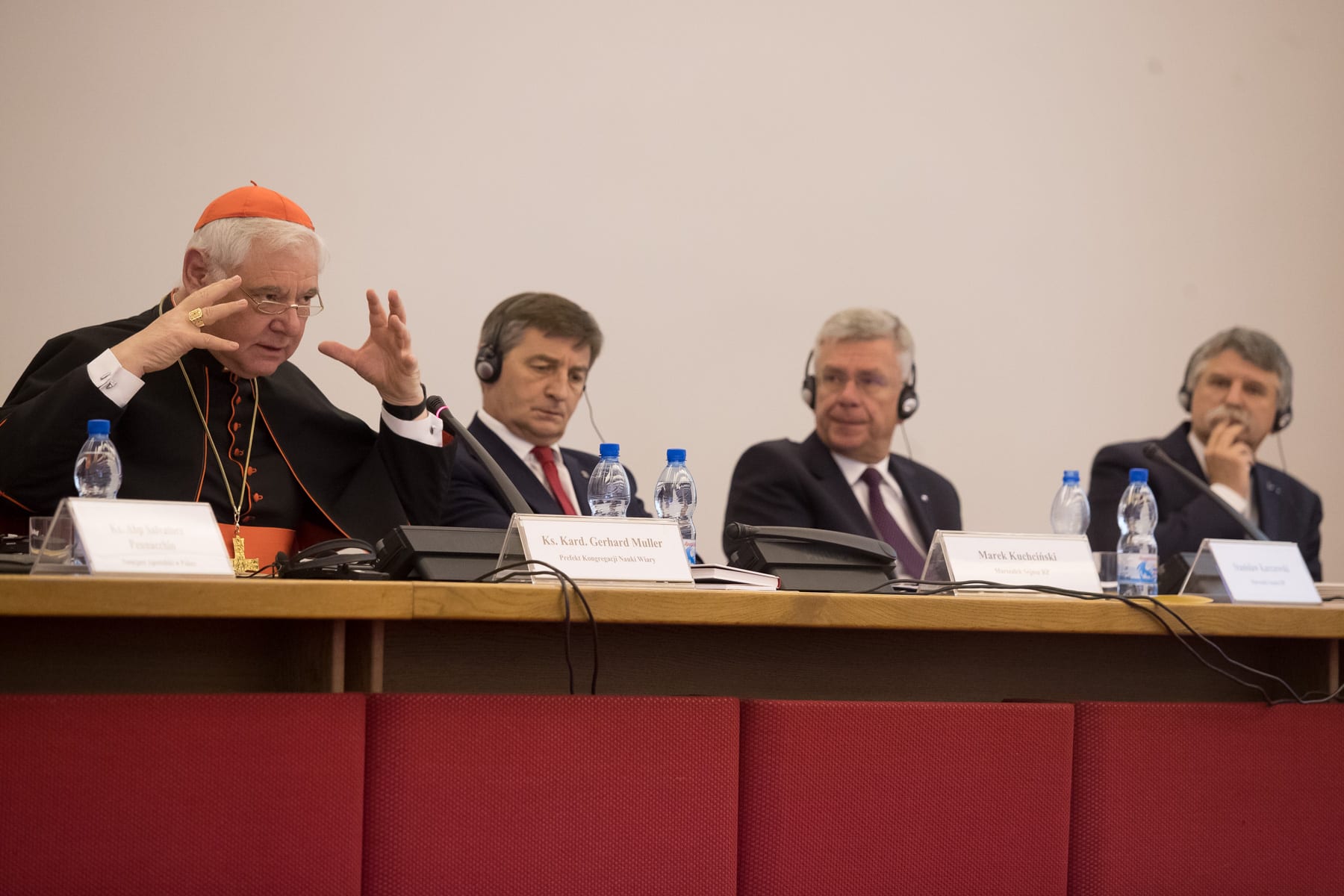 Cardinal Gerhard Müller, Prefect of the Congregation for the Doctrine of the Faith: The Church is the best advocate of human dignity.
Cardinal Gerhard Müller, Prefect of the Congregation for the Doctrine of the Faith: The Church is the best advocate of human dignity.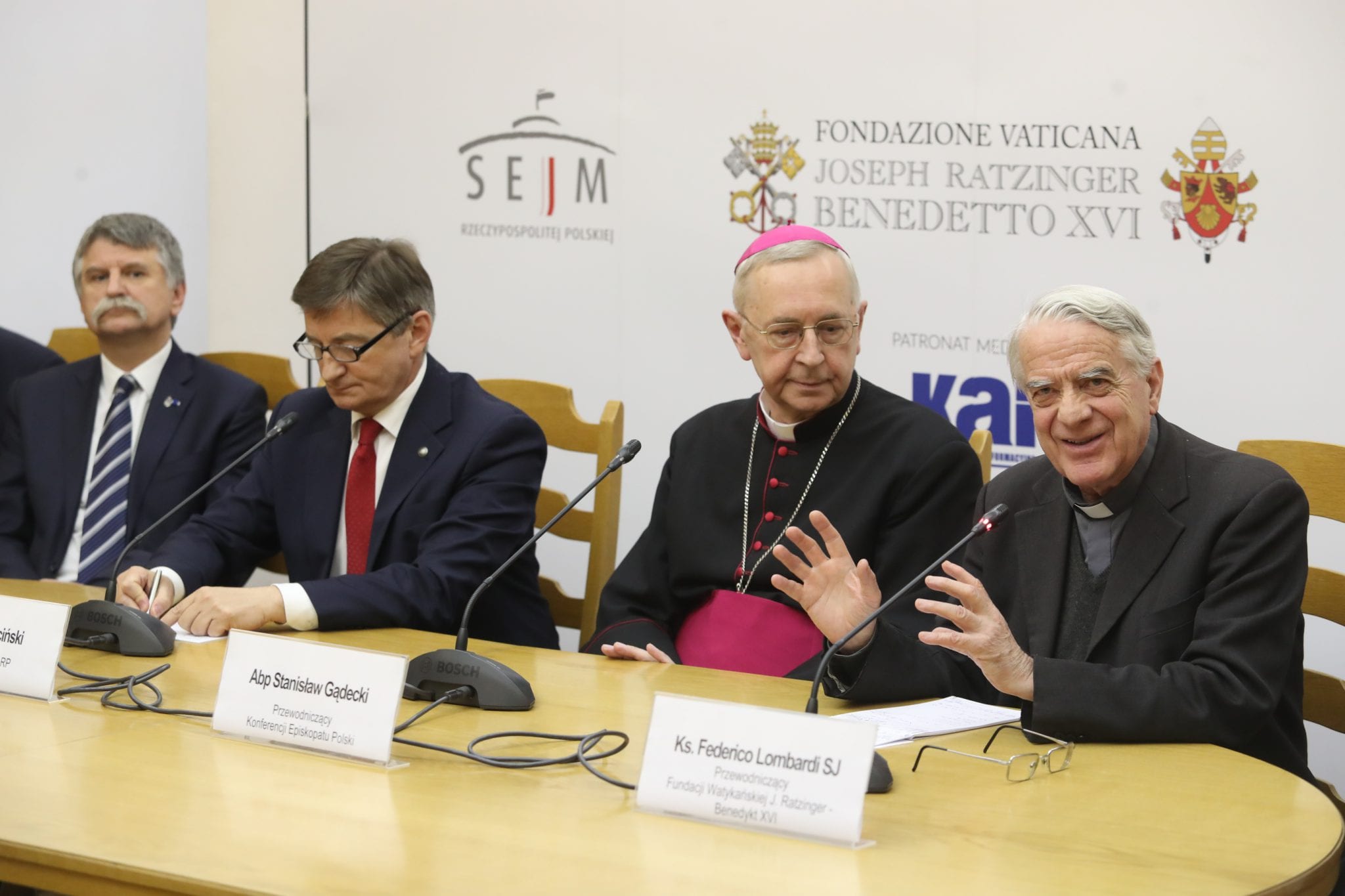 Benedict XVI's spokesman Fr. Federico Lombardi SJ: Forgetting God as well as the marginalization of religion in public life are a threat to social life and to human dignity.
Benedict XVI's spokesman Fr. Federico Lombardi SJ: Forgetting God as well as the marginalization of religion in public life are a threat to social life and to human dignity.
In a letter addressed to the conference participants, Benedict XVI wrote, among other things: The theme chosen leads state and ecclesiastical authorities to dialogue on a crucial problem for the future of our continent. The juxtaposition between the notions of a radically atheistic State and the rise of a radically religious State among Muslim movements is leading our times to an explosive situation, the consequences of which we experience every day. These radicalisms urgently require that we develop a compelling notion of the State that will bear the confrontation between these challenges and help transcend them.
photo: P. Kula


